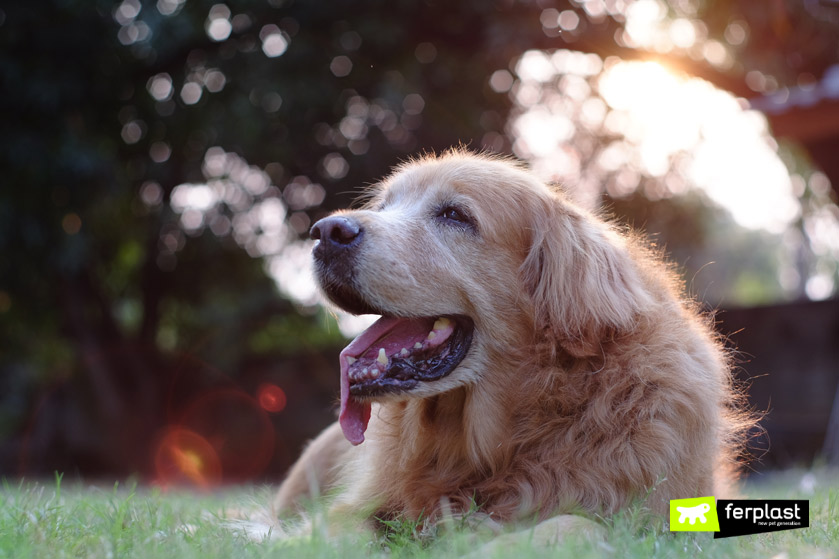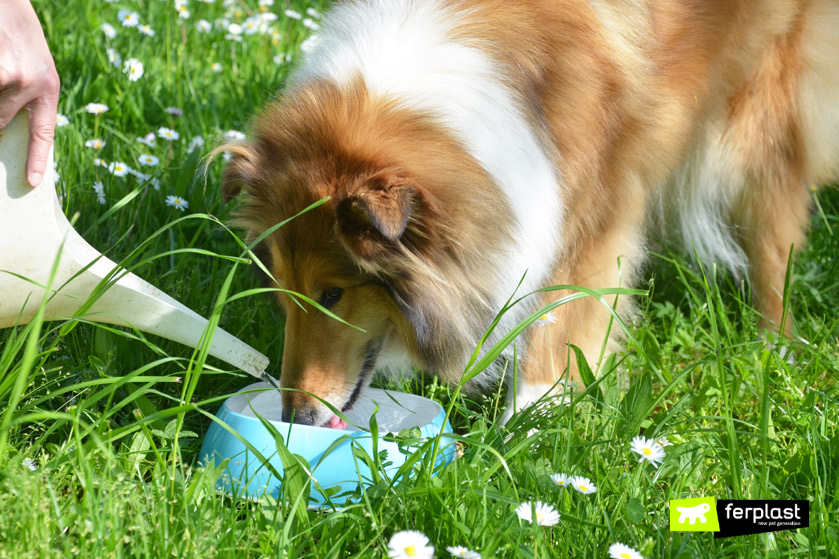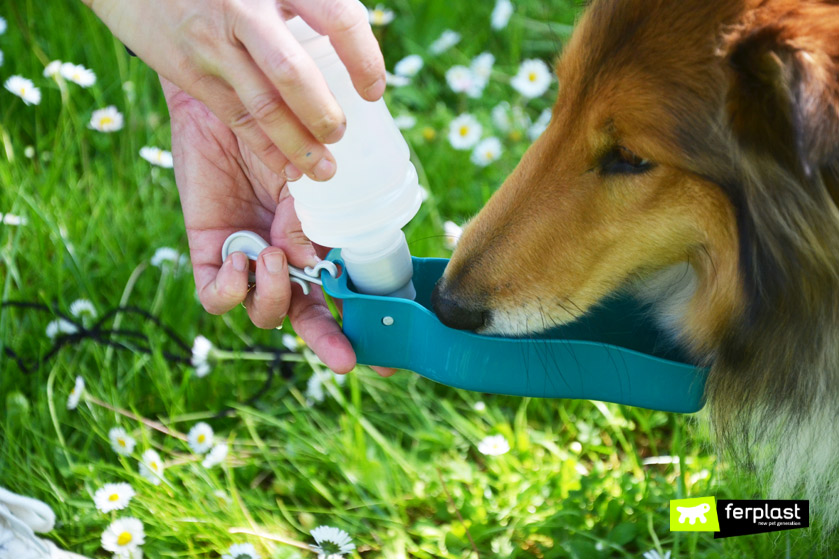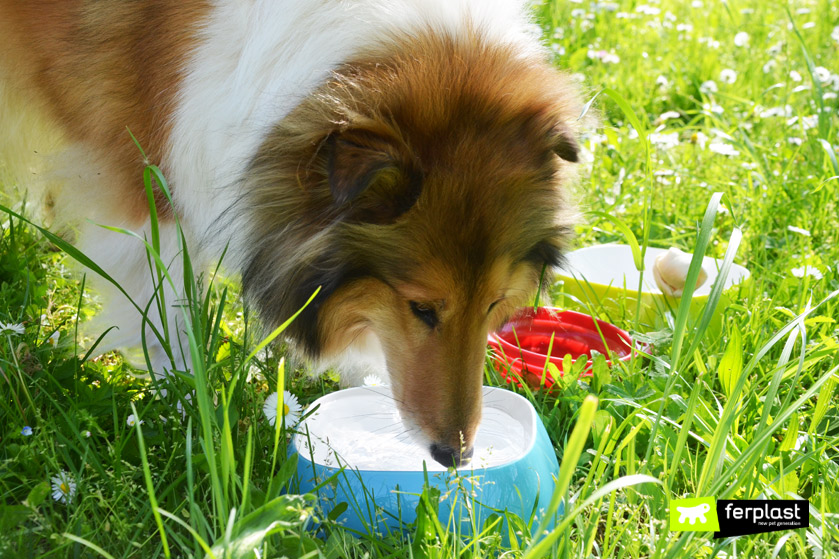Now that summer is upon us, it’s important to give your dog plenty of water, more than she usually drinks throughout the year. Water makes up 80% of her body and it’s the foundation of all her biological processes, including blood circulation, digestion and excretion. Old dogs need even more water to prevent health issues such as dehydration.
Dehydration is an insufficient amount of water in the body, and it occurs when your dog’s body loses more fluids than she drinks (output > input). A dehydrated animal will suffer from loss of calcium, magnesium, potassium and sodium, which will make her very weak. Small dogs have a higher risk of dehydration, but they’re by no means the only ones to suffer from lack of water.
We’re well aware that as dogs get older, they’re more prone to health issues of various kinds, and dehydration is one of them. As they get older and weaker, we ourselves must make sure they’re drinking often, so that their bodies maintain the minerals and vitamins they need to help them feel well.
A dehydrated dog is immediately recognisable: she’ll lose weight in a visible manner, her skin becomes wrinkled and less elastic, her gums get dry and her eyes sink in their sockets. Vomiting, diarrhoea and tachycardia can also be observed. In particular, old dogs, when dehydrated, will show small cysts and furuncles. If you observe these signs on your dog, call her vet. But there’s something you can do to prevent it from happening in the first place.
First of all, provide clean water to your dog every single day, changing it often to make sure it’s fresh. Remember to wash the bowl to keep bacteria from growing.
Monitor the amount of water she drinks on a daily basis, and even if she’s old and tired, try to make her drink at least 30 ml (the amount will vary according to her size). To make things easier, try using a water bottle: place it close to her mouse and make sure she doesn’t cheat.
Remember to check the inside of her mouth for wounds or foreign bodies, initial signs of this condition.
It’s very important to take good care of and keep company to your furry friend, especially when she’s no longer a young miss!




